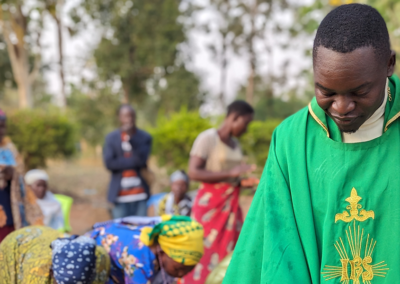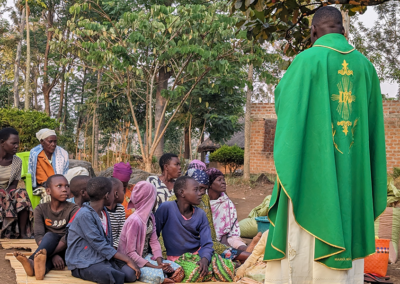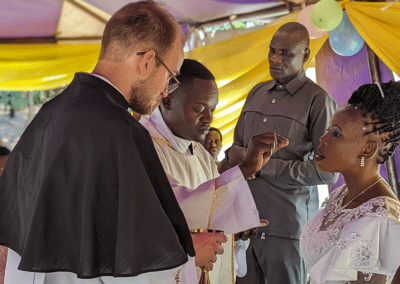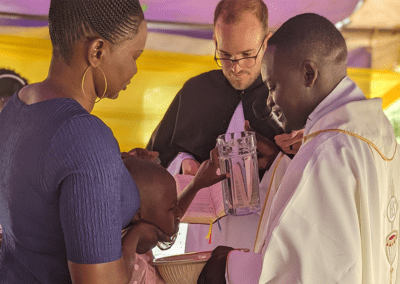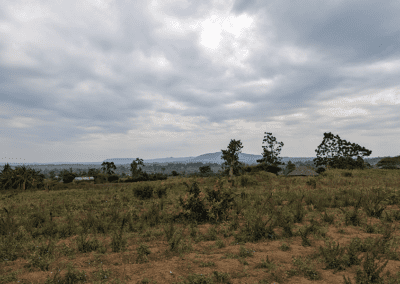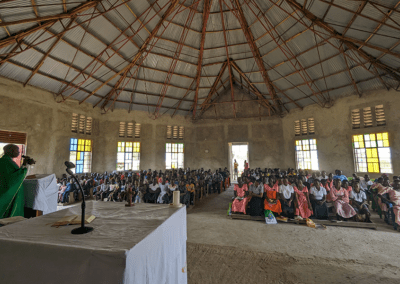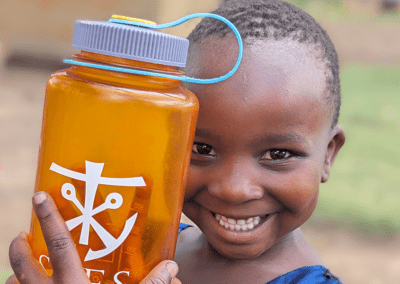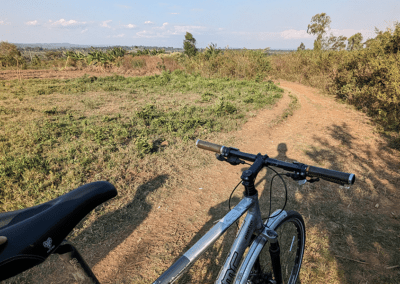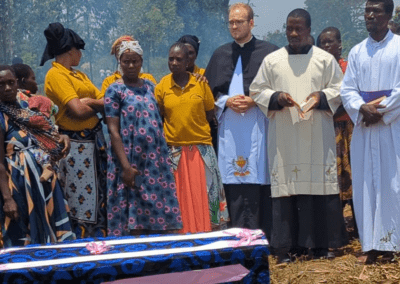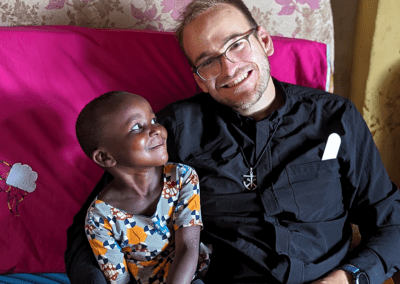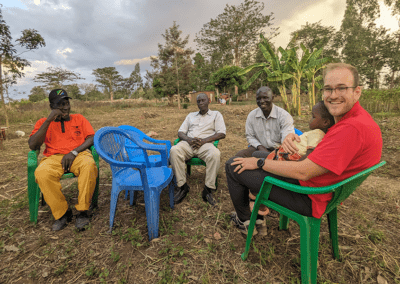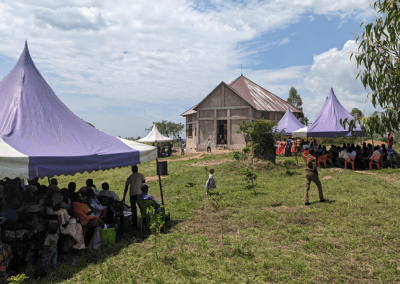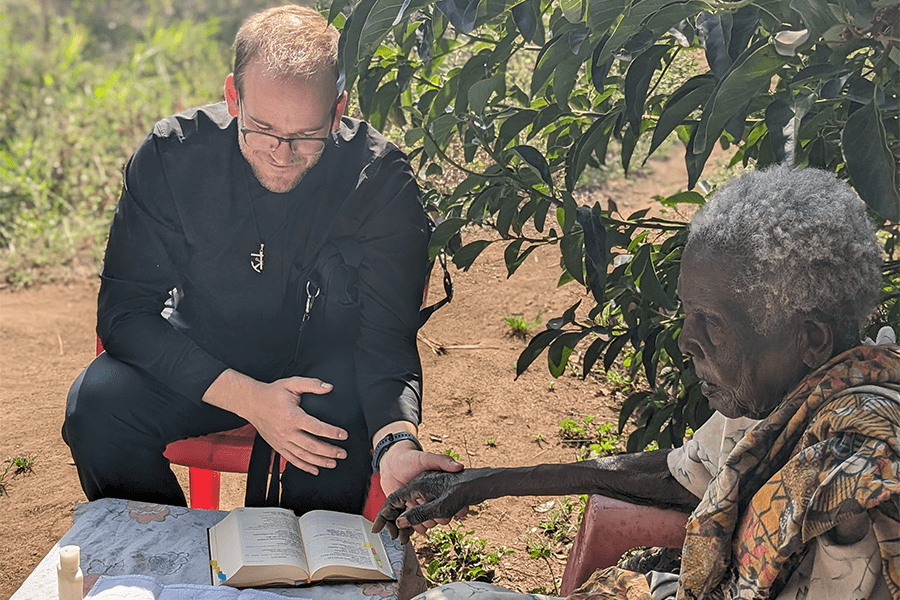
In the “Letters from Nyumbani” series of reflections, Moreau seminarian Keenan Bross, C.S.C., will share his experiences during his pastoral year at St. Felista Catholic Church, a Holy Cross parish in Utegi, Tanzania. The series title includes the Swahili word “Nyumbani,” meaning “home,” a reminder that for Holy Cross religious, “Often we must make ourselves at home among more than one people or culture” (Constitution 2 of the Congregation of Holy Cross).
———
“Rural Poverty & The Heart of a Pastor”
Today marks the end of my first week on Pastoral Year here at Mtakatifu Felicita Catholic Parish. My fairly simple days have consisted of shadowing our priests for Masses in the villages, shopping trips to town, funeral and burials at peoples’ homes, and orientation and meeting our parishioners and neighbors. I am not quite able to do much official ministry yet – not only because I am not yet oriented to the place much, but also because I’m still working on the difference between grandmother/daughter (Bibi/Binti) and botch the grammar (frustratingly complicated) of just about every sentence I put together in Swahili. So, when I am not with our parishioners, I am still speaking almost entirely English with our local community of two priests and two fellow seminarians on pastoral year.
These conversations, though, have been hugely helpful in terms of my orientation. We have touched a wide range of topics pertinent to Catholic ministry and evangelization in Tanzania: child marriage, traditional burial practices, evading driving penalties, and even polygamy. Not only have these been bonding moments of community where my brothers (mostly from Uganda, actually) get to share with me their stories and perspectives – they have also provided me with key details about the people I am seeking to live among and serve this year.
The most troubling and consistent theme of these conversations, though, has been that of the rural poverty of our people. Fr. Andrew Mulema, C.S.C., the assistant pastor with whom I have been riding passenger for much of this week, has shared story after story about one family after another to depict to my some of the typical challenges folks face here. Basically, there are very few ways to generate income since there is nearly no industry nearby. So, most people are totally dependent on what they can grow on what little land they happen to have – both to eat and to sell for some income. But when harvests are meager, or they are unable to work the land, or they need to pay for medical bills or tuition feels, financial collapse is inevitable.
Fr. Andrew, who has spent the first five years of his priesthood here, told me that last year he had enough of seeing people’s desperation and not being able to do anything about it materially. So he applied for a grant for $3,500 from our Holy Cross Mission Center – specifically, he shared, to take care of the elderly who had no one to provide for them. Over the course of the year Fr. Andrew gradually distributed these funds, $5 or $10 at a time, to support the elderly scattered in our villages with medicine and food. In a few cases, he also helped pay schooling fees out of his own pocket for young people who were the only hope for their families. As we drive around the parish and Fr. Andrew tells stories of all the different broken lives he’s supported, spiritually and materially, it’s clear just how much of a true pastor’s heart he has – broken and given to the people.
The most striking moment of seeing his pastor’s heart came just a few evenings later when, sitting around the dinner table, we were talking about just how dire life around here can be. He shared, “You know, Keenan, if you can’t dig, you can’t eat.” There are a good number of elderly who, even though they may have land nearby, they can’t cultivate it. This inspired him a few years ago, he said, to begin cultivating some acres of his own corn on the parishes land. What he harvests, he keeps to distribute to people who are “just starving, just going hungry,” he said. “It’s not much, but it’s enough to keep them alive.”
Besides the elderly, it’s amazing to see the heart that Fr. Andrew has for young people. It’s a common occurrence that, after meeting one of our youth, Fr. Andrew debriefs with me. He will say, “he/she is my good friend,” and explain some of the challenges they might have gone through:
- a young woman with a teenage pregnancy that had to drop out of school,
- a young man who was forced into a marriage without any say,
- a mother who has to raise her children alone because her husband left for another woman,
- and so on.
You can tell that his heart is really broken for these vijana, young people, and that each of them has found great help moving forward in his support. In fact, it’s rare to interact with these folks without them sharing: salamia Padri Andrea! Say hello to Fr. Andrew!
He’s even got a big heart for children. On Sunday, I was quite confused because after our first Mass at 7:30 this little girl, probably age 5 or so, came with some friends to the rectory to have mandazi and a soda – a real treat for any child. But then the same girl hopped in the car with us to travel down the road for our second Mass – which made me think maybe we were going to drop her closer to home. Then, she continued with us even for our third Mass at noon at the nearby girl’s secondary school – I thought maybe she had a sister there to visit. Then, she hopped in the car with us again to head back to the parish and just before pulling up our drive we dropped her at her home – only a couple hundred feet from the church! Andrew explained to me that he’s known this girl ever since she was born and he was a deacon here, and that if he celebrates the first Mass at the parish, she insists on joining him for the whole day! Of course, besides having some culture shock at the ease with which parents allow their children to be supervised by other adults in this culture, my heart was touched by the closeness of Fr. Andrew and this little girl. What wonders his ministry will do for her image of the Church and image of God!
Truly, in Fr. Andrew, I’ve seen the heart of a pastor. Like Mary’s heart, a heart that’s pierced by the sorrows of the people he encounters. He befriends them, walks with them, and supports them as he can. In him, really, I have seen the Church of the Acts of the Apostles alive and well – where priests and deacons take what little is offered and distribute it as best they can to the most needy, to the widows and the poor, since they know them well. I thank God for the opportunity to live with and learn from this man this year. And also for all the generous benefactors who have supported our missions over the years and have made it possible to take Fr. Andrew from his village in Uganda, educate and form him, and make him a priest for these people. Really, it’s hard to imagine a better gift to a place like Utegi than a pastor with a heart like Fr. Andrew’s, a heart like Jesus’s.
———
“Falling in Love with a Parish – on Bike!”
One of the challenges I encountered in my first weeks here in Utegi was mobility. Though we have three eccentric vehicles – an old beater Toyota truck, a Toyota Rav-4, and a newer Toyota “Hilux” truck – we use them only for ministry or community needs, since fuel is so expensive here (roughly $5 or $6 USD per gallon), and we prefer to put those Tanzanian schillings to other good uses. I felt, to be honest, somewhat locked on our parish compounds since it’s a 10- or 15- minute walk to town, and much further to reach the vast majority of our parish.
So, after a week or two in Utegi, I arranged to buy a used bike from a shop that sells Western-style bikes and have it shipped by bus here to Utegi. Fr. Mulema, our assistant pastor, who said that he’d been considering getting a bike for years, put in an order with me. And a few days later, the beauties showed up here at our parish. Basically since that day, he and I have gone out riding nearly every day. Really, I have loved bikes for many years and ridden one nearly every day since I came to Notre Dame in 2016. I’ve even often dreamed about one day being in a rural place where I could move around a rural parish or community by bike. So, thankfully, that day has finally arrived!
It’s been a great gift. Some of our first trips were to the nearby football pitch where local teams of young men square off with one another. These matches drew fairly large crowds of people of all ages to chat and watch the game together. As a mzungu (white foreigner), I generally cause quite the spectacle pulling up – not in the least because folks generally expect a mzungu to be driving a fine car. Generally, I avoid the attention by pulling off to the side and chatting with children. The nearly incessant advice you get from just about everyone for language learning is that you’ve got to talk with children. Well, at those football matches, I’ve done a good deal more joking with children, having my Swahili corrected time and again, than spending timewatching the young men kick the ball around.
At one such match attended by one or two thousand people, I could not hide away with the children. As soon as I pulled up, I was singled out by an announcer, invited over to be introduced, and sat down with fellow “official” guests to sit under in chairs under a sun-blocking tent. Think the village-version of box seating. After shaking hands and taking official pictures with both teams, I sat down with two mweshi-miwa, or “big-deal men,” on either side. On my right was the chief of police for Utegi who is also a practicing Catholic. Besides learning a good deal about the police system in Tanzania, I think I also got my way out of any traffic misunderstandings that may come my way in the next year. And on my left was the tallest man I’ve met in Utegi, Magege, who is a leading local politician and heads up the leading political party, CCM, here in Utegi (think “the party” in China, not Republican or Democrat). The man actually knew what a frateri (seminarian) was and greetws me with the Catholic greeting tumsifu Yesu Kristu, let us praise Christ – a sign that he’s a Catholic who I might have the opportunity to follow up with and invite back home to Church over the course of the year.
Besides the football pitch, the bicycle has helped me plug into the everyday life of the village. One of our local mzee, or elders, Baba Anselmus, befriended me in my first week at the parish and invited me to his home about 2km away. The next week, Anselmus’s family gathered all day for four days straight to commemorate the two-year anniversary of the death of his father, something very typical of the Lou people that are prominent in this part of Tanzania, stretching north around Lake Victoria into Tanzania and Uganda. As each day of ministry wound down, I was able to make my way over to Baba Anselmus’s homestead before sundown and sit and chat with his family. It was a gift to eat ugali and beef, rice and pork, sitting in plastic chairs, and hear about family life, the history of this region, and their practice of the faith. The swarm of grandchildren, also present, wanted to teach me some local dances but fled when I got anywhere too close – still a bit afraid of the white-skinned foreigner. I even got to know all of Anselmus’s daughters who have all fallen away from regular practice of the faith for one reason or another. I hope to walk with them over the course of the year and invite them home, too. I rode away from Baba Anselmus’s each of those evenings with dusk setting over Utegi very content with a sense that this place was really becoming home.
Baba Anselmus was the first home that the bike took me to, but certainly not the last. Since then I’ve made it a point to head out each day an hour or so before sunset and return to the home of someone I met over the course of the week. Basically, all you need is a couple of details about a person – their name, the name of a child, where they go to Church – and nearly any neighbor can point you along toward their home. In fact some kids are very eager to show me along, even to the point of running alongside my bike to the destination. Whenever I arrive, families are generally fairly shocked, invite me in and try to put some chai and chapati on the table. We chat about school, life, work, and family – generally making it to whatever hardships are going on. Then, as the sun begins to set, I’ll pull out my rosary and pray a decade or so with the family. It’s been a great privilege to be part of family prayer, sit around on the carpet or humble plastic chairs. And I hope that this seed of prayer might take root for these families to pray together long after I’m gone.
As dusk settles in, I flick the headlight on my handlebars on and do my best to navigate home before evening prayer at 7:30pm. I go home so thankful to God for the opportunity to be rooted in this one place among these people for this year. I’m grateful, also, for the way this hobby of mine is allowing me to get to know all the dirt roads and corners of our parish, and the people that live there, like the palm of my own hand. Who would have known that a humble gravel bike would be the key to falling in love with this place.
Learn more about Holy Cross in Tanzania
Published: October 3, 2024
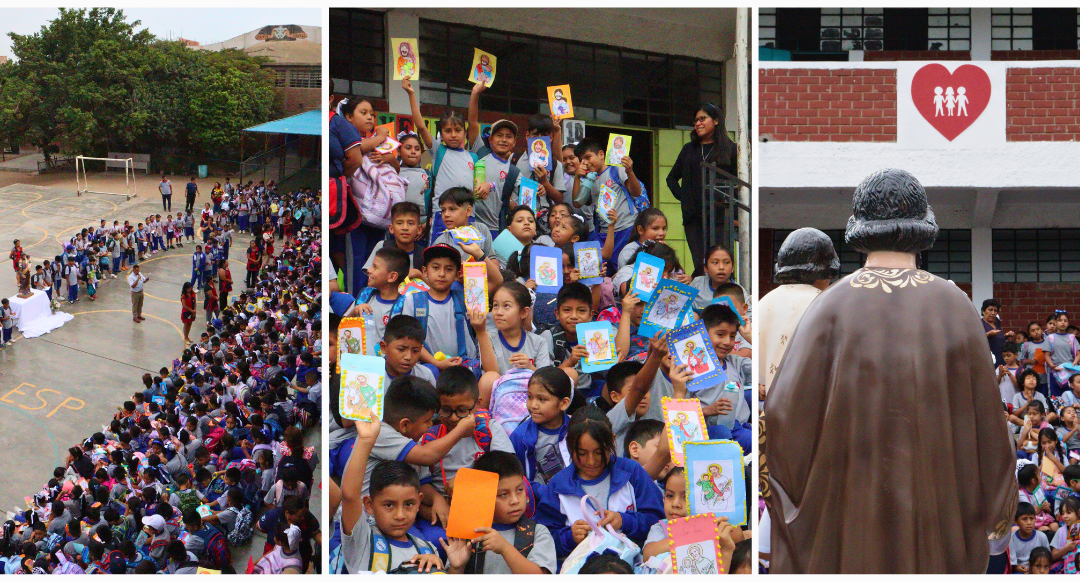
Faith Abroad: The Feast of St. Joseph in Chile & Peru
The Feast of Saint Joseph was celebrated with joy and devotion across the District of Chile-Peru, uniting the Congregation of Holy Cross, including...
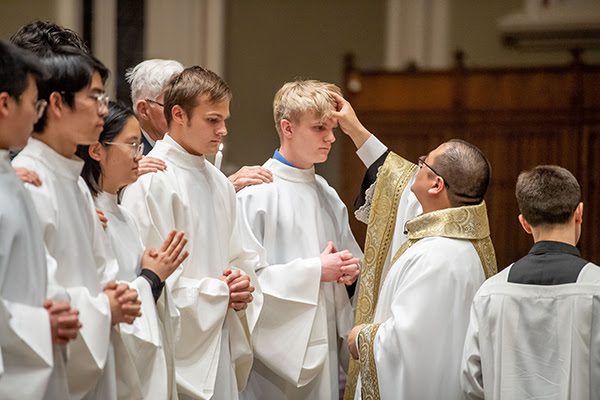
April 2025 Prayer Intention of the Superior General
All are invited to pray along with Superior General Br. Paul Bednarczyk, C.S.C., this month: For those who will receive the Sacraments of Initiation...
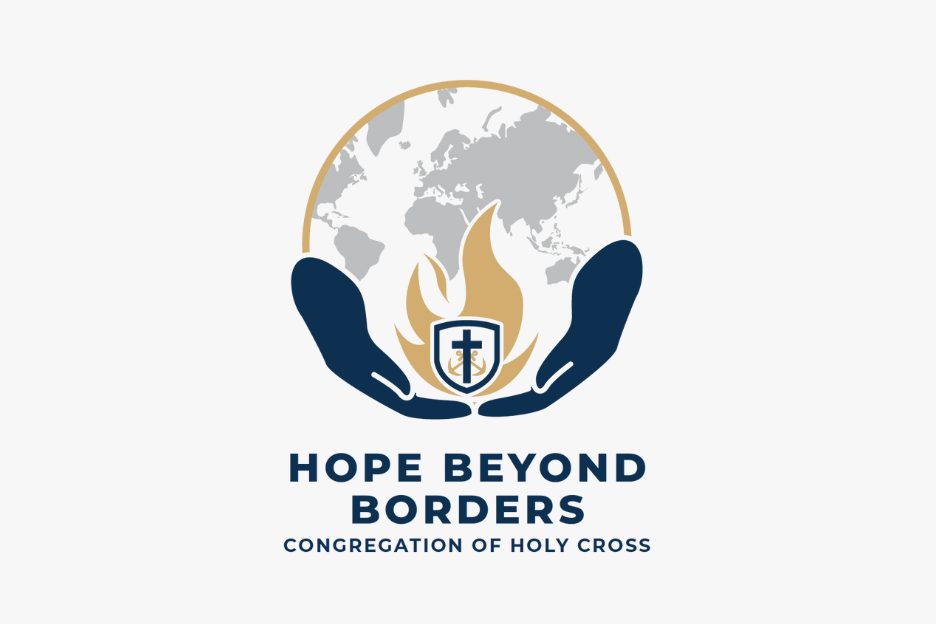
Celebrate With Us! The Year of Mission Begins on April 28, 2025
The Congregation of Holy Cross invites all friends, collaborators, and ministries to join in celebrating a landmark spiritual initiative: the Year...

